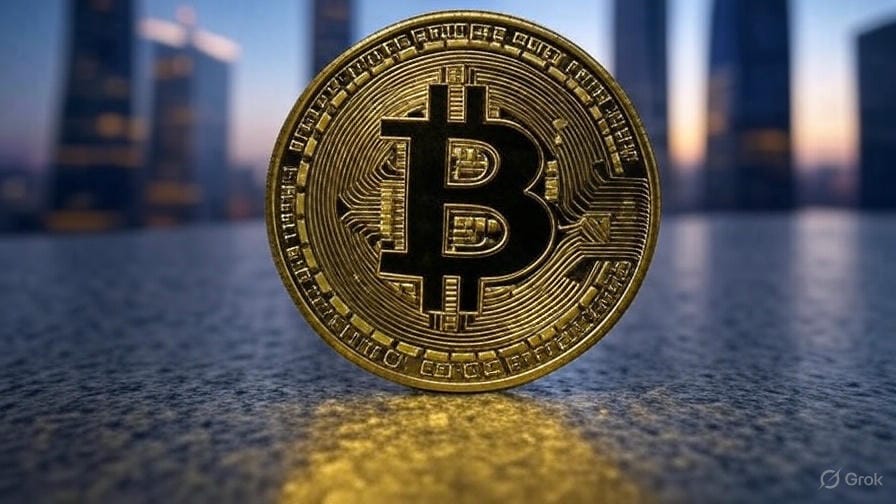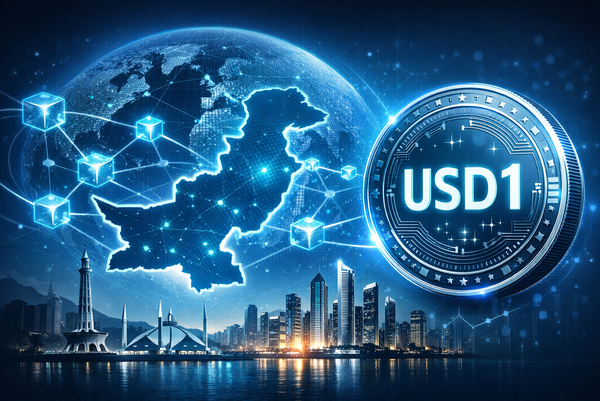Pakistan's Bold Move Towards Bitcoin Reserves: A Strategic Power Play in the Digital Economy
Pakistan is setting up its own Bitcoin reserves and allocating a significant portion of its energy resources — a staggering 2,000 megawatts — to mine Bitcoin.

The world is witnessing a paradigm shift in how nations view and manage their financial assets. Countries, traditionally reliant on physical commodities like gold, are now accumulating digital assets — and Bitcoin, often dubbed "digital gold," is taking center stage. Earlier this year, the United States made headlines by announcing its own Bitcoin Reserve (SBR) strategy, and now, Pakistan is following suit. In a move that is sending ripples through global financial circles, Pakistan is setting up its own Bitcoin reserves and allocating a significant portion of its energy resources — a staggering 2,000 megawatts — to mine Bitcoin.
Bitcoin: A New Asset Class for Nation-States
As of this writing, Bitcoin is trading around 30 million Pakistani Rupees (PKR) per coin, a substantial sum by any measure. But analysts predict the price could soar to over 300 million PKR per Bitcoin within a year, driven by the continued global adoption and increasing institutional interest. This price surge isn’t just speculation; it's backed by the finite nature of Bitcoin's supply, capped at just 21 million coins, a number that will never change. As demand rises and supply remains fixed, the price inevitably climbs — making Bitcoin an increasingly attractive store of value.
The idea of nations holding Bitcoin is no longer a fringe concept. Publicly traded companies like Strategy™️, the world's largest Bitcoin holder with over 580,000 BTC, have led the way in showcasing Bitcoin’s potential as a treasury asset. With countries like El Salvador already adopting Bitcoin as legal tender and others contemplating similar moves, the stage is set for a new wave of national-level crypto adoption. Pakistan's entry into the Bitcoin reserve game is a bold statement, positioning itself as a potential leader in this rapidly evolving digital economy.
Pakistan’s Vision for Bitcoin Reserves
In a major policy shift, Pakistan's government formed the Pakistan Crypto Council (PCC) earlier this year to oversee the country's strategic cryptocurrency initiatives. Although the full scope and implementation plans of the council remain somewhat ambiguous, the government has made clear its ambition to become a global player in the digital space. The formation of the PCC signifies the country's intent to position itself as a digital economy powerhouse, leveraging its resources — particularly its cheap energy and young, tech-savvy population.
While details about Pakistan’s Bitcoin Reserve (SBR) are still emerging, the country’s decision to allocate 2,000 megawatts of electricity for Bitcoin mining is a bold move. This allocation, if properly managed, could make Pakistan one of the largest global players in Bitcoin mining. With energy costs often being one of the most significant barriers to mining profitability, Pakistan’s relatively inexpensive electricity makes it an attractive destination for Bitcoin mining operations.
The country’s potential to become a Bitcoin mining hub is further bolstered by its access to renewable energy sources, particularly hydropower, which makes it a more sustainable option for large-scale crypto mining. By tapping into these energy reserves, Pakistan could not only generate profits through Bitcoin but also contribute to the global supply of this revolutionary cryptocurrency.
Challenges Ahead: The Role of the IMF and Global Skepticism
Pakistan’s ambitious Bitcoin Reserve plan has already faced challenges, notably from international bodies such as the International Monetary Fund (IMF). In the wake of Pakistan’s announcement at a prominent Bitcoin conference in Las Vegas, the IMF has raised concerns about the potential risks of the country’s embrace of Bitcoin. The IMF, along with other global financial institutions, has been cautious about the volatility and regulatory uncertainties surrounding cryptocurrencies. Pakistan’s ongoing negotiations with the IMF for financial aid could be complicated by the country’s aggressive stance on Bitcoin reserves.
However, this tension could also be viewed as an opportunity. If Pakistan can successfully implement its Bitcoin strategy while navigating the demands of the IMF, it could serve as a model for other nations seeking to incorporate digital assets into their economic frameworks. Pakistan’s Bitcoin strategy could turn out to be a long-term game-changer, positioning the country as an early adopter in the global race toward digital asset accumulation.
A Digital Economy in the Making: Web3, Data Centers, and a Young Workforce
The creation of the Pakistan Crypto Council is not limited to Bitcoin. The council has also voiced its interest in promoting Web3 technologies, which are seen as the next iteration of the internet, based on decentralized protocols and blockchain. By establishing data centers in Pakistan, the country aims to position itself as a global hub for blockchain-based innovations, offering an attractive environment for Web3 startups and enterprises.
Pakistan is uniquely positioned to become a leader in the digital economy. As the 5th largest country by population, with over 230 million people, it boasts a rapidly growing young population, with a median age of just 23. A large percentage of the population — particularly those between the ages of 15 and 35 — is tech-savvy, making the country an ideal market for emerging digital technologies. Furthermore, Pakistan is already one of the top IT services exporters in the world, demonstrating a strong foundation in digital innovation.
With the right policy framework, regulatory clarity, and international partnerships, Pakistan could transform into a global digital hub. The emergence of the Bitcoin reserve strategy is just the beginning of what could be a decades-long journey towards economic transformation. As the world shifts towards a future where Bitcoin and other cryptocurrencies are integral to the global economy, Pakistan has a chance to position itself as a key player.
The Path Forward: Bitcoin as the Future
If Pakistan gets its strategy right, it could become one of the strongest economies in the world over the next 20 years. The key to success will be in creating a regulatory environment that attracts both local and international players in the crypto and Web3 spaces. Clear guidelines, transparent policies, and strong partnerships with global tech firms will be crucial in fostering innovation and growth.
The rise of Bitcoin is not just a financial phenomenon; it's a revolution in how we think about money, assets, and sovereignty. For countries like Pakistan, Bitcoin offers a chance to break free from traditional financial systems, build a resilient economy, and tap into new, decentralized forms of wealth creation. While there are risks — particularly concerning regulatory uncertainty and global financial pressures — the rewards could be immense if Pakistan succeeds in its digital transformation.
In a world where the future of money is increasingly digital, Pakistan’s strategic move towards Bitcoin could very well be a cornerstone for the country’s economic resurgence. The sky's the limit.




